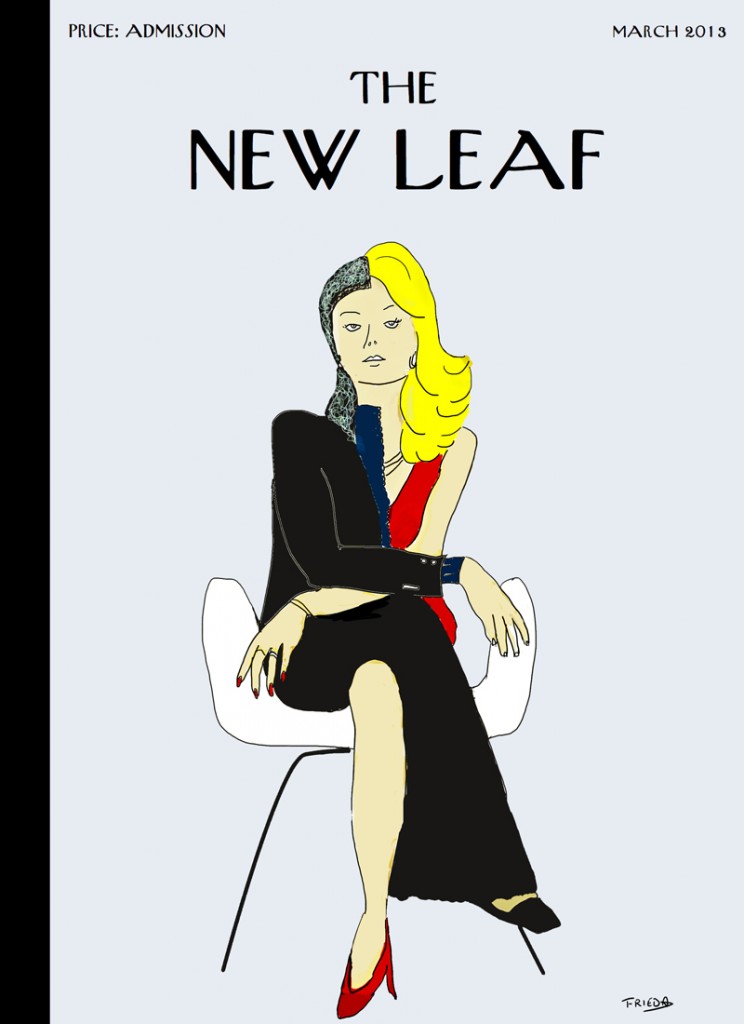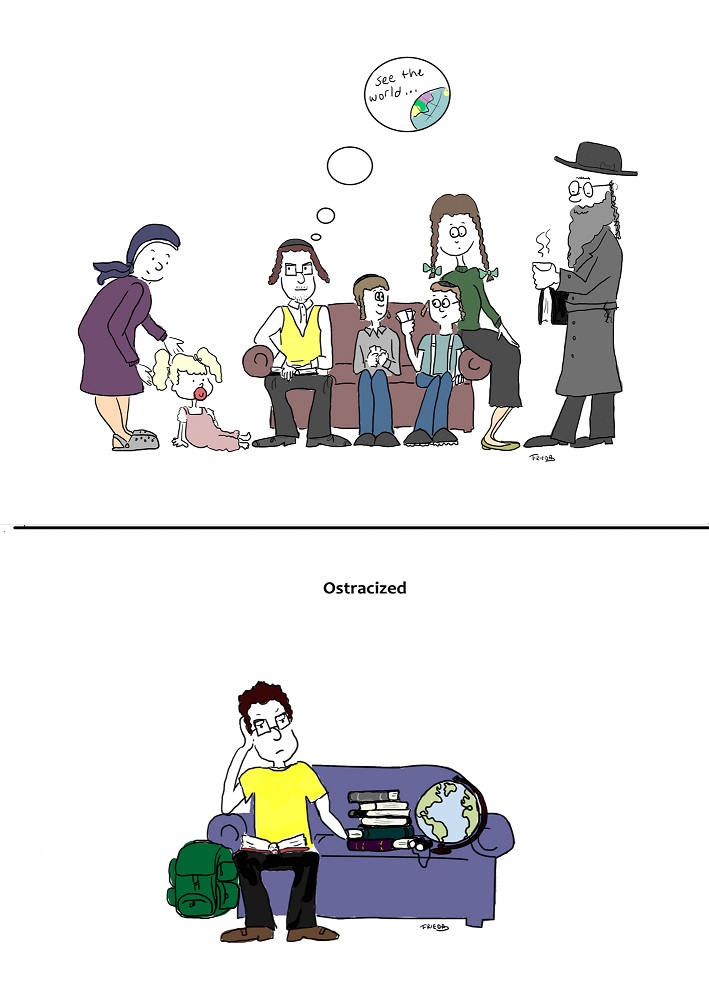I often compare my Hasidic childhood in Kiryas Joel to the Rockettes. Yes, those gorgeous 6 feet girls who perform on Broadway and dance and kick in perfect unison — yes, them. That’s how I remember it felt.
Let me explain.
Life in Kiryas Joel was many things; it was filled with female friendships, family, tradition, and constant stability. But when I try to articulate what affected me most in Kiryas Joel, I think about its discipline among women. It was like I was thrown onto the stage with these dancers. Kiryas Joel’s female population mastered perfect execution of societal choreography, self constraint, unity. We all didn’t look like these Rockettes below (or above), true, but all of my friends seemed to embody the same skill.
My all-girls classes were filled with well-groomed students ready to stand under the stage’s bright lights; to perform; to be perfect. The Hasidic community was the audience, they were all watching, the yentas and neighbors were eager to applaud or critique, and all we girls had to do was behave as we were taught. Everyone had the right postures, moved with beautiful precision, knew intuitively how to earn the approval of the crowd. They were not only modest; they were also as ‘spast, as was appropriate, and they were always “normal”, a standard that required execution of an indefinite number of rules. They could read social cues effortlessly and know without instructions what was right or wrong.
And then there was me. I was dancing with these Jewish Rockettes too, only I had no talent for it. I tried to dance; I more like bobbed; wobbled; flapped and yipped. I was as if short legged and clumsy, always absent minded and anything but a group person. I did not fit the costume at all and was an eyesore in the Hasidic girl’s uniform. As a younger kid my thick blue tights often trailed out of my shoe in a giant tail so I spent half the day tugging the stocking’s waistline up to my buttocks. People said my hair was never brushed but I didn’t know how they knew or why it mattered, and my pleated skirt was more puffy creases than pleats. No matter how hard I tried to be a Rockette, disheveled tombody I was, a Rockette I wasn’t. In this performance of religious behavior, my legs would never extend to the right length, my body would not deliver the right symmetrical movement, and my face couldn’t hold itself together with the perfect controlled smile. I was always forgetting what I was supposed to do, improvising, getting it right, getting it wrong, being weird, being silly, crying in public, laughing in public, doing things that didn’t belong on the Spectacular, raising eyebrows from the crowd, wanting to run off the stage.
I got suspended from school three times for being wild, behavior that was extremely shameful among mature girls. I was constantly in trouble. Every good or mediocre episode was a rare victory – a good report card, a pious prayer – and it was soon followed by a disaster; an inappropriate comment, troublemaking in class, just being scatterbrained.
I was always a sensitive soul and I internalized all of the criticism and let it eat at me. I spent much of my youth wishing I was like the others who were dazzling the crowd – good girls; great modest, help-at-home, mature girls – full of hope for their futures, making their mothers proud. I remember many, many nights in bed, curled up in my orange Spitzer’s nightgown, just hating myself. All I wished for was to stop being me.
My teachers, my parents, the neighbors, everyone cheered for my friends and sisters. “Spectacular!” they applauded. “Perfect! What fine, b’chaynt girls.What a joy to watch them!” and to me they’d offer encouragement: “Be like that! Do that! Follow the script! You can also be a fine Rockette!”
I wanted to be a Rockette. I wanted it so badly; I believed I could be like the others if only I tried hard enough. I kept promising myself to try. I would control myself, I would be good. I would make my mother proud. She would be so proud. She would cry naches tears and then my world would shine. I saw my mother among this audience as she watched me, I heard her pray at dawn and I knew she davened for me to improve, I saw her hopefulness that I’d get it right, then her disappointment when I acted “crazy” or “not normal” and everyone judged me. I was often upset with myself, but never as much as when I sensed the disappointment of my sweet mother who prayed every day for things to go more smoothly for me.
I often wondered why I couldn’t get it right. As I walked Forest Road to the Shopping Center, I remember trying to figure out: what’s wrong with me? Why am I so weird? Why do I break out into a sudden skip, almost as if I was overtaken by a tick, while walking in the street, when I was already a kallah meidel, big and grown up, and should be “normal?” Why did I laugh to myself or sing to myself or talk to myself while normal people just kept it together, even faced? What was wrong? I knew that no one would ever hurt me and tell me if I was somehow born with a disability that made me so terrible at what I needed to do, so I had no way of knowing what the problem was. But it was clear to me that there was something wrong. Everyone was so amazing. Whatever was wrong








You must be logged in to post a comment.